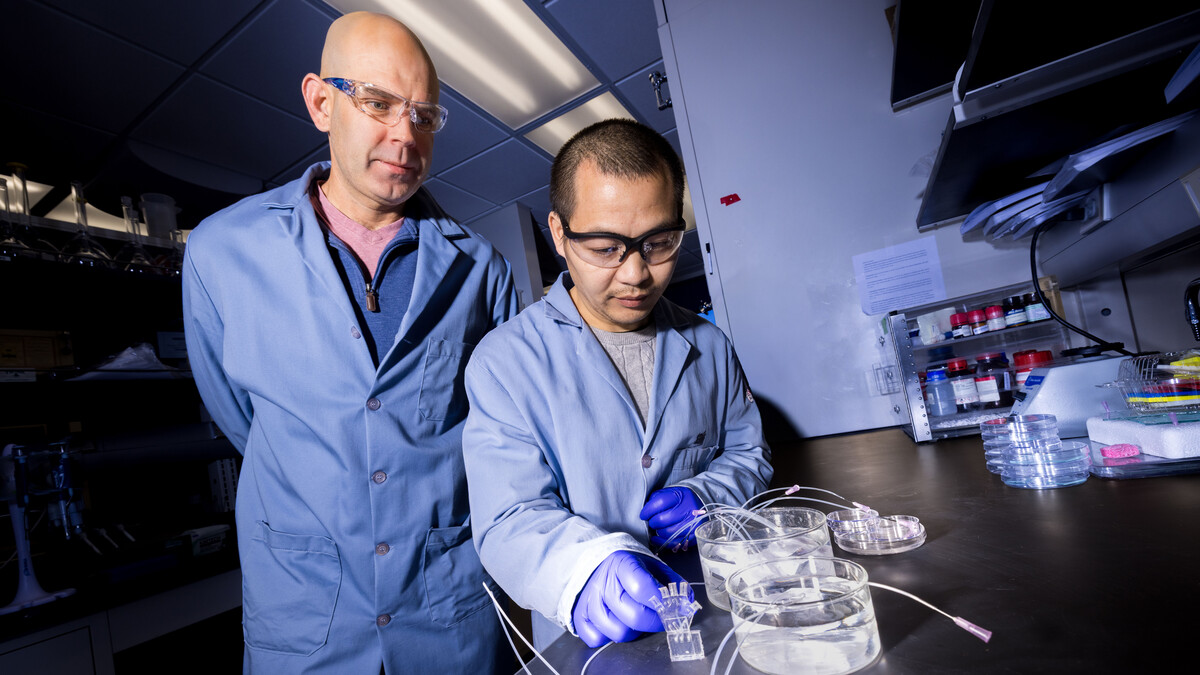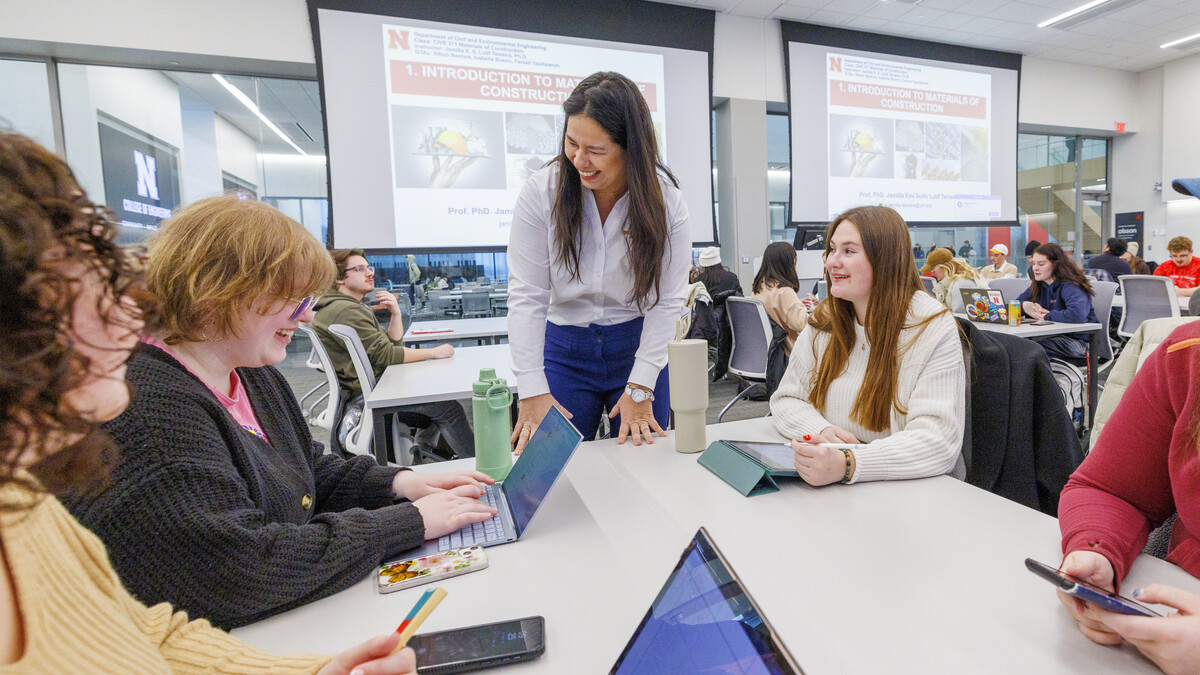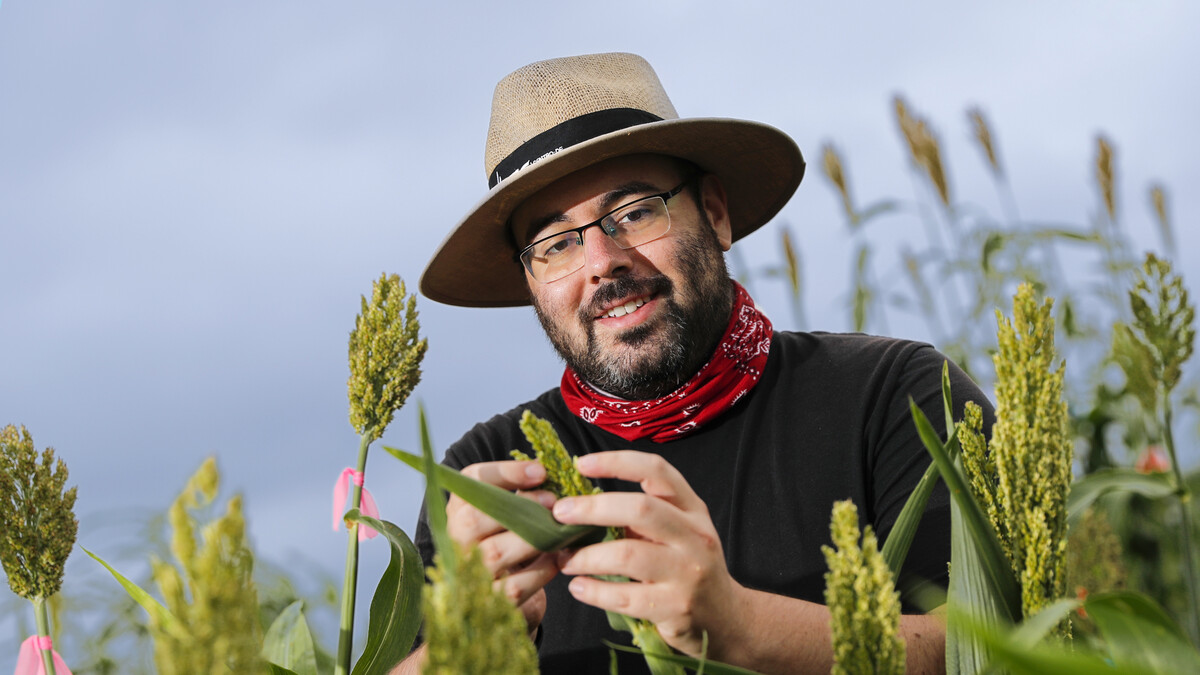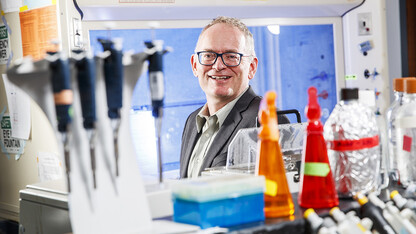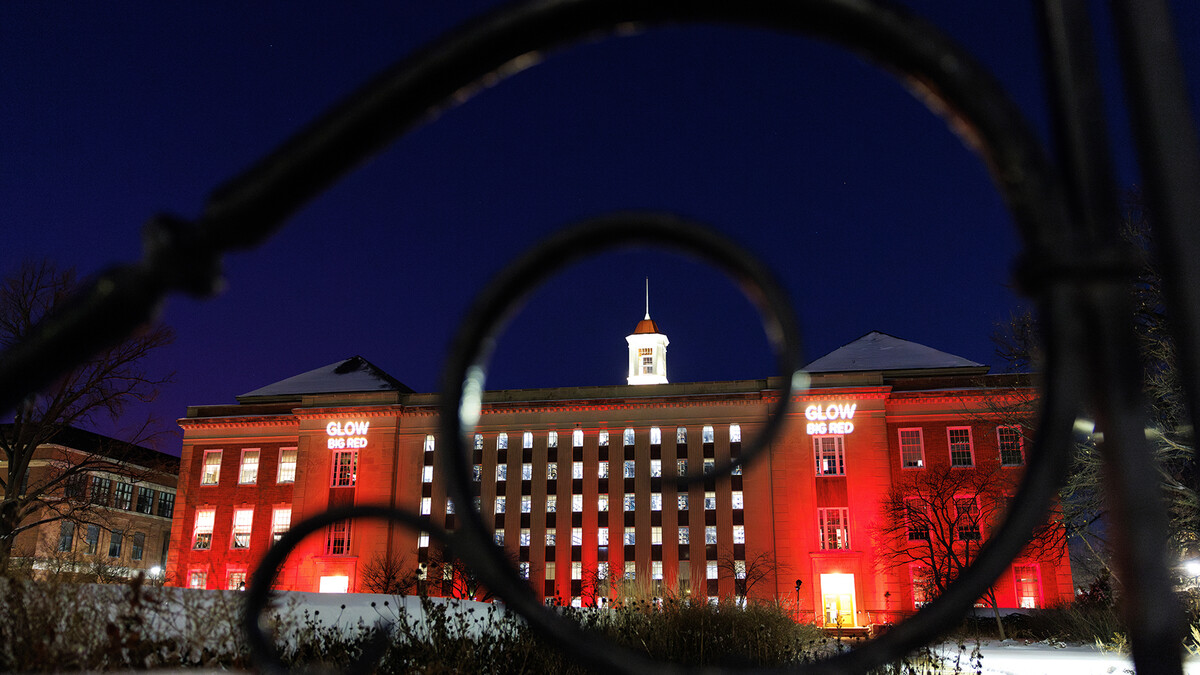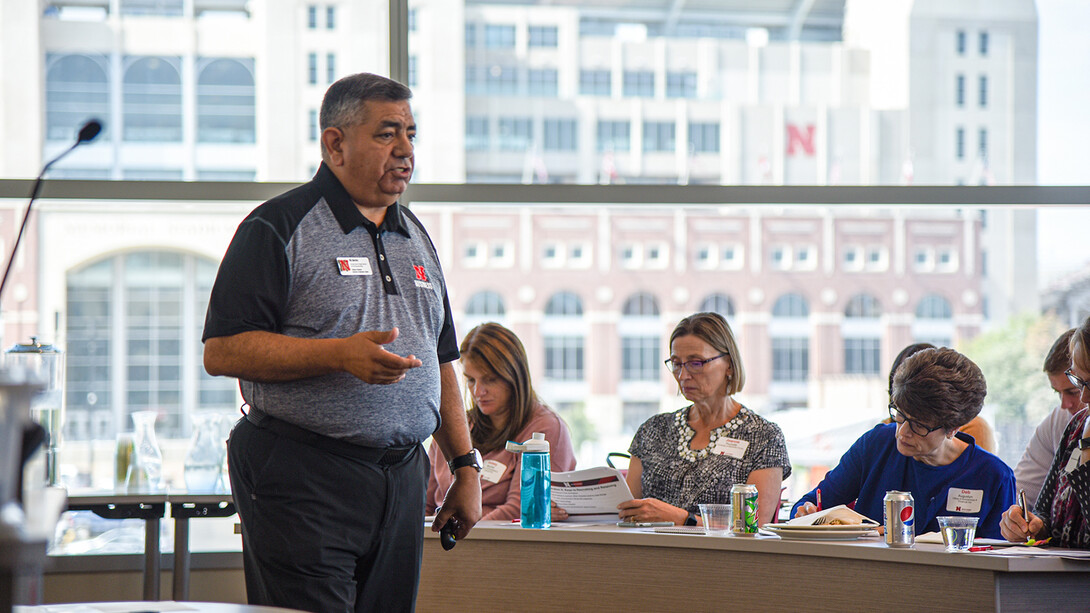
Advance your skills during the Power Lunch series created by the University of Nebraska–Lincoln’s Center for Executive and Professional Development. Led by Nebraska faculty members and industry experts, the in-person lunches in Omaha and Lincoln facilitate thoughtful discussion around today’s important topics and help build skills needed in the rapidly changing business world.
The Power Lunches in Lincoln in September and Omaha in October focus on topics including diversity and inclusion, managing communication and culture among generations, changing milestones post-pandemic, adaptive leadership, power language, the basics of investing and the power of positivity.
“We are excited to again offer in-person Power Lunches, and this year we expanded sessions to serve local professionals and executives, thanks to our partnership with Footprints Asset Management and Research,” said Emre Unlu, executive director of the center, Paul C. Burmeister College Professor of Economics and associate professor of finance. “These face-to-face sessions allow facilitators to lead discussions that focus on the rapidly changing workplace, offering solutions as we challenge the way we think and manage our teams to lead the future of business.”
The 90-minute lunch series begins Sept. 1 at Howard L. Hawks Hall in Lincoln and Oct. 1 at Champions Run in Omaha. Each session runs from 11:30 a.m. to 1 p.m. and costs $49, including lunch and parking ($44 for University of Nebraska–Lincoln faculty and staff). Register for one or several lunches.
Lincoln Power Lunches (Wednesdays in September)
Do You Know Your Why When it Comes to DEI? with Helen Fagan, Sept. 1 — Sharing a diversity, equity and inclusion statement will be the next big factor in the hiring process. Fagan, assistant professor of practice in agricultural leadership, education and communication and author of the new book “Becoming Inclusive: A Worthy Pursuit in Leadership,” shares how to articulate your thoughts and actions around DEI. It’s challenging for leaders and employees, but those who can articulate their why are more likely to commit to action in their sphere of influence.
Managing Communication and Culture in the Five-Generation Work Force with Rik Barrera and Rachel Larson, Sept. 8 — Five generations in the workforce now affect the culture of companies, and research shows managers create a positive and productive organization. Barrera, College of Business associate dean of operations, inclusion and chief of staff, and Larson, assistant dean of academic and career development, focus on how the five generations think and work together, what they look for in a job or organization, how to effectively manage them and how to build a culture that makes your company an attractive place to work.
Power Language with Kathy Castle and Aaron Duncan, Sept. 15 — Successful communicators understand the power inherent in their verbal and nonverbal messages. Excellent communicators also understand how to analyze interactions and adapt their language to achieve their goals. This session with Castle, associate professor of practice, assistant department chair and director of undergraduate education, interpersonal and family communication, and Duncan, director of speech and debate, rhetoric and public culture, helps to analyze interactions and adapt language.
Omaha Power Lunches (Fridays in October_ These five events are sponsored by Footprints Asset Management and Research
Being a Change Agent: Applying the Principles of Adaptive Leadership with Jake Messersmith, Oct. 1 — Adaptive leadership helped many good leaders become great and great leaders to learn new ways to bring out the brilliance in others. Messersmith, associate professor of management and interim executive director of Business Graduate Programs, discusses the principles that distinguish technical problems from adaptive challenges and leadership from authority. A deeper understanding of these principles allows managers to use the fundamentals of adaptive leadership to tackle tough organizational challenges.
The Post-Pandemic C-Suite Executive: Changing Milestones with Kimberly Russel, Oct. 8 — Executives tested during the pandemic are now examining leadership talent through a new lens. Although many of the traditional leadership characteristics expected in executives remain, a new set of experiences and characteristics emerges. With a background in health care, and engagement with national boards and executives, Russel, CEO of Russel Advisors and formerly at Bryan Health, will share insights and leadership strategies relevant to C-suite executives. She will discuss leadership milestones and pathways to the C-suite in a post-pandemic world.
Managing Communication and Culture in the Five-Generation Workforce with Rik Barrera, Oct. 15 — Five generations in the workforce now affect the culture of companies, and research shows managers create a positive and productive organization. Barrera, College of Business associate dean of operations, inclusion and chief of staff, focuses on how the five generations think and work together, what they look for in a job or organization, how to effectively manage them and how to build a culture that makes your company an attractive place to work.
The A-B-Cs of Investing: Do You Know Where to Start? with Zach Houston and Steve Lococo, Oct. 22 Unless you enrolled in an investment class or majored in finance, you likely weren’t taught the basics of investing, which aren’t intuitive. This session provides the basics of investing and helps you ask the next set of questions. Houston, portfolio manager, and Lococo, president of Footprints Asset Management and Research, present the basics of investing with engaging insights into the current environment and what the past year taught us.
The Power of Positivity with Tim Hodges, Oct. 29 Focusing on actions we can take to spread positivity and own our individual talents helps us better accomplish our goals. This session by Hodges, executive director of the Clifton Strengths Institute, assistant professor of practice in management and a Gallup-Certified Strengths Coach, shares ways individuals and teams can maximize their strengths and increase performance, engagement and well-being in their education, career and lives.



